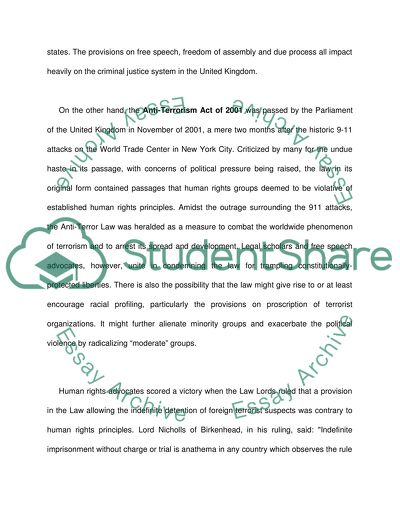Cite this document
(“Human Rights and Anti-Terrorsm Legislation Essay”, n.d.)
Retrieved from https://studentshare.org/law/1522793-human-rights-and-anti-terrorsm-legislation
Retrieved from https://studentshare.org/law/1522793-human-rights-and-anti-terrorsm-legislation
(Human Rights and Anti-Terrorsm Legislation Essay)
https://studentshare.org/law/1522793-human-rights-and-anti-terrorsm-legislation.
https://studentshare.org/law/1522793-human-rights-and-anti-terrorsm-legislation.
“Human Rights and Anti-Terrorsm Legislation Essay”, n.d. https://studentshare.org/law/1522793-human-rights-and-anti-terrorsm-legislation.


